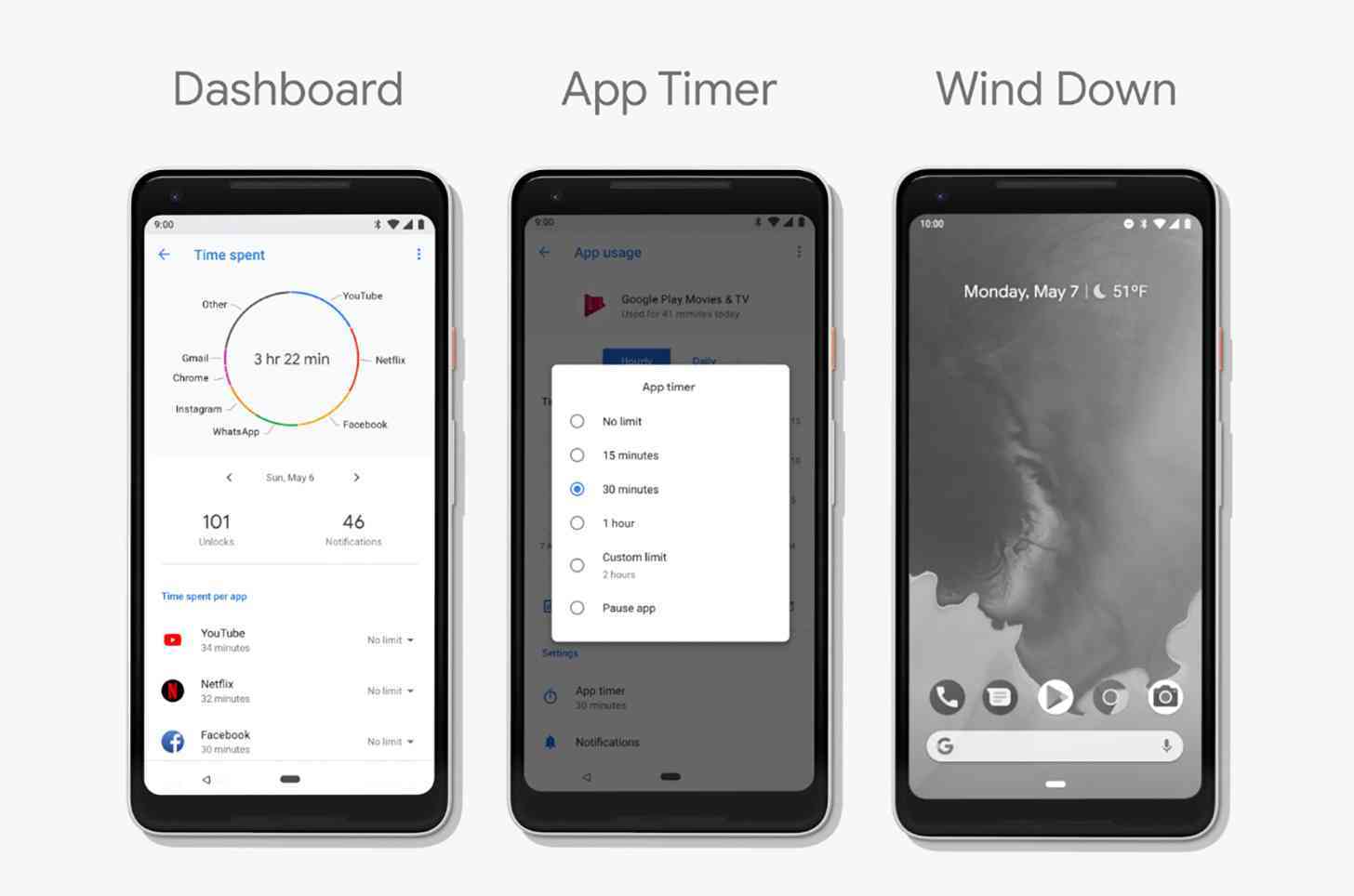
As is par for the course, Google I/O was no slouch in the exciting announcements this year. Google unveiled new efforts in the artificial intelligence space, new features for Google Maps, and much more. You probably heard about Google Duplex, too, which will let Google Assistant make phone calls on your behalf to make appointments and reservations.
Duplex picked up a lot of attention after it was unveiled. Folks were blown away by what Google was showing off, both in good ways and bad. The technology seems outstanding, but the implications of its use are not so positive in some people's eyes. Google is pushing boundaries again, and it will be interesting to see where Duplex goes from here.
And then there are the company's efforts with "digital wellbeing".
Google unveiled new tools to help people keep tabs on how they use their phone, which apps they are using, how often they use them, and much more. There's even the ability to gray out an app icon, hopefully preventing a device owner from selecting it. And device owners can have their whole display switched to grayscale, which is designed to reduce a desire to want to use it.
As the company was unveiling these features, I couldn't help but think this is great, but maybe just barely skirting the line of what should be done to help try and reduce device addiction. It's a conversation that has been going on for quite some time, and both Google and Apple have been at the forefront of those talks for most of it. People believe that these companies should be doing more to help us curb our desire to use our smartphones (or other devices) all the time.
I didn't think Google's efforts were good enough in the moment, because I chalked it up to just doing the bare minimum. Graying out an app icon? Great. But then I realized that these subtle changes might actually do some good. Because knowledge is power, and being able to see how often you use an app might actually make you want to change that behavior.
Apple introduced Do Not Disturb While Driving not too long ago and it quickly became one of my favorite features. Google has a similar idea here with its digital wellbeing efforts, and a similar feature in place for while you're driving on some devices. I didn't think too much of DND While Driving until I started using it, and it has greatly reduced my desire to want to check my phone while I'm behind the wheel.
Don't get me wrong here, I didn't ever check my phone while I was driving. But I would when I was stopped at a light, or otherwise not actually moving. And I did that mostly because while I was driving and not looking at my phone I'd get a notification. I'd need to check it, so when I stopped I did. But, as I've written about in the past, even in those moments you shouldn't be looking at your phone. We should always be fully aware of our surroundings while we're driving.
And being fully aware of what we do on our phones, and having that data presented to us clearly and concisely, might help us make some changes. But what do you think? What do you like about Google's new digital wellbeing initiative?